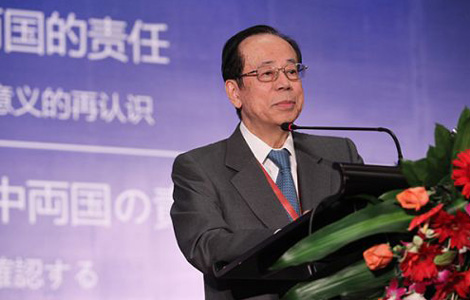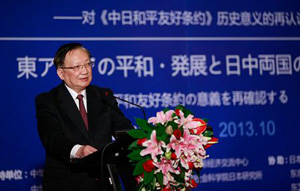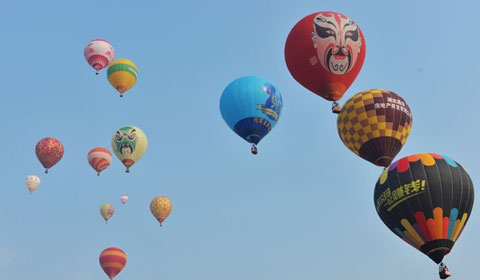Asian American Christians take stand
Updated: 2013-10-21 05:01
By Kelly Chung Dawson (China Daily USA)
|
||||||||
When high-profile Evangelical pastor Rick Warren posted a Facebook image of a Cultural Revolution-era Red Guard captioned with a quippy comment about morning work attitudes in the office last month, Chinese American readers immediately pushed back. A heated exchange followed, in which some compared the use of the image to joking about the Holocaust.
Warren eventually took the image down, but not before he had personally made an appearance in the comments to say, "People often miss irony on the Internet. It's a joke, people! If you take this seriously, you really shouldn't be following me!"
Shortly after, Christian conference group Exponential screened a video parody of The Karate Kid, in which a Caucasian actor played an Asian lackey with requisite broken English. For a coalition called Asian American Christians United, the screening presented the latest in a long-running pattern of racial insensitivity that included the 2004 publication of LifeWay Christian Resources promotional materials endorsing an Asian-themed "Rickshaw Rally" curriculum; and in 2009, Zondervan published a book titled Deadly Viper: A Kung Fu Survival Guide for Life and Leadership. Last week the group published a four-page open letter to the American Evangelical church, titled "On cultural insensitivity and Reconciliation in the Church".
 "We the undersigned, are distressed about the continuing divide that persists in the North American evangelical church in the area of racial harmony," begins the letter, which was signed by more than 700 prominent Asian American Christians, including established academics, the head of a seminary and a number of popular bloggers. "Certainly, we acknowledge that over the past several decades, the church has grown both in understanding and pursuit of racial reconciliation. However, such efforts… have resulted in tokenism, in which organizations or events allocate an appropriate number of spots to include voices of color and mistakenly believe that is all that is required."
"We the undersigned, are distressed about the continuing divide that persists in the North American evangelical church in the area of racial harmony," begins the letter, which was signed by more than 700 prominent Asian American Christians, including established academics, the head of a seminary and a number of popular bloggers. "Certainly, we acknowledge that over the past several decades, the church has grown both in understanding and pursuit of racial reconciliation. However, such efforts… have resulted in tokenism, in which organizations or events allocate an appropriate number of spots to include voices of color and mistakenly believe that is all that is required."
According to a survey conducted by the Pew Research Center, Christians are the largest religious group among Asian Americans today, with 42 percent identifying with the religion. The second largest group are those who identify as unaffiliated (26 percent), with Buddhists accounting for 14 percent. Of those who identify themselves as Christian, an estimated 13 percent are Evangelical, and now represent a substantial demographic in the national Evangelical Church.
Interestingly, Asian Americans are more likely to practice Christianity in rates that do not correlate to their home countries. While a vast majority of participants in the Pew study were born in China, 31 percent of the Chinese Americans identified themselves as Christian. In China, an estimated 5 percent of the population ascribes to Christianity.
Following the publication of AACU's letter, Exponential director Todd Wilson issued a public apology, acknowledging the offensiveness of the video parody. Last week Wilson and Exponential president Dave Ferguson met with five Asian American Christian leaders, including Biola University/Talbot Seminary professor Brian Chan.
During the meeting, one participant told the group that the video had brought back childhood memories in which he had been tormented for being Asian. Ferguson later called the anecdote "eye-opening", and acknowledged his own "blind spots" in relation to race.
Asian Americans are more readily mocked than other disadvantaged groups because a lack of political and cultural activism has created an environment in which those who perpetuate harmful stereotypes are rarely reprimanded, said Young Lee Hertig, executive director of the Institute for the Study of Asian American Christianity. The African American community is more organized, and has been more willing to speak out against injustice, she said.
"We don't have that history, and it has been rarely reported even when Asian Americans have resisted," she said. "We don't leverage our cultural capital to fight for ourselves, and the truth is that I don't think the progress that's occurred with civil rights would have ever happened if people hadn't actively fought back. If we choose the path of least resistance and we remain silent, racial insensitivity will only be perpetuated."
The fact that Asian Americans are generally viewed to be assimilated tends to overshadow the "otherization" many feel in response to casually cruel humor, she said.
Many in the church have pointed to Asian American friends who find race-related jokes funny, an argument that implies an overly sensitive attitude in those who don't, AACU notes.
"In response to this point, we would like to know how many offended Asian Americans it takes to catalyze cultural change?" the letter asks.
The church has since pledged to better educate leaders in the areas of racial and cultural sensitivity, but Hertig is taking a "wait and see" attitude, she said. "Action counts."
Contact the writer at kdawson@chinadailyusa.com
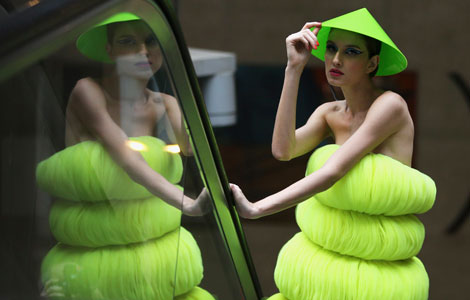
 Sao Paulo Fashion Week held in Brazil
Sao Paulo Fashion Week held in Brazil
 Serena beats Li Na for WTA title
Serena beats Li Na for WTA title
 Nuclear submarine fleet comes of age
Nuclear submarine fleet comes of age
 5 pharmacies begin to sell baby formula
5 pharmacies begin to sell baby formula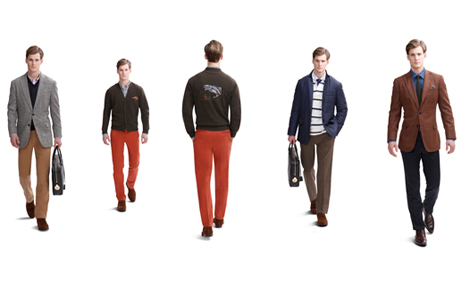
 The suave style of America's dapper dynasty has arrived
The suave style of America's dapper dynasty has arrived Mother and four children stabbed to death in New York
Mother and four children stabbed to death in New York
 China Fashion Week S/S 2014: day 2
China Fashion Week S/S 2014: day 2
 Demonstrators protest against govt surveillance in US
Demonstrators protest against govt surveillance in US
Most Viewed
Editor's Picks

|

|

|

|

|

|
Today's Top News
US-China CEO's Dialogue held in Washington
3 die after car crash at Tian'anmen Square
ABC apologizes for offensive words on Chinese
NQ Mobile hits back after US stock plunge
Jewelry exhibit dazzles Southern California
Obama aware of spying on Merkel: German paper
High speed versus history
States gear up for symposium
US Weekly

|

|
